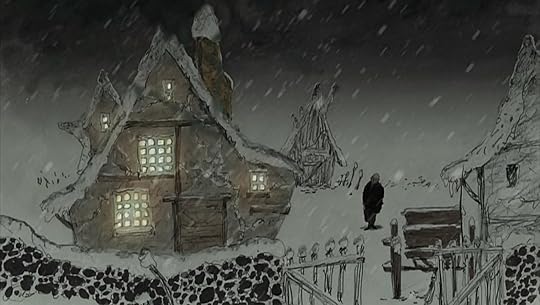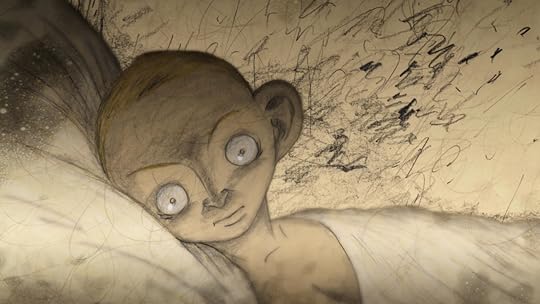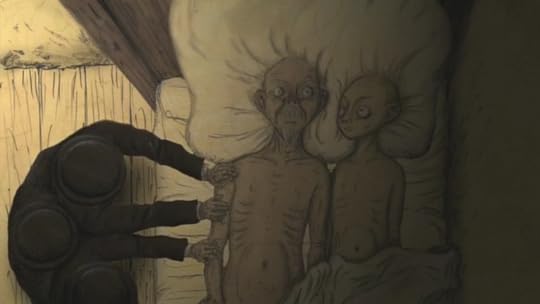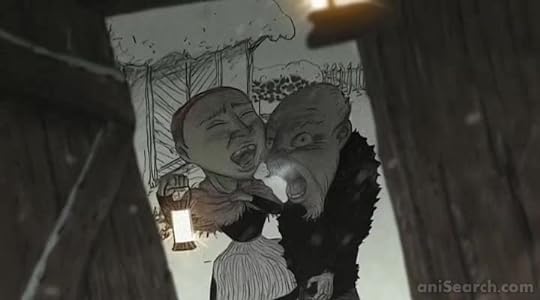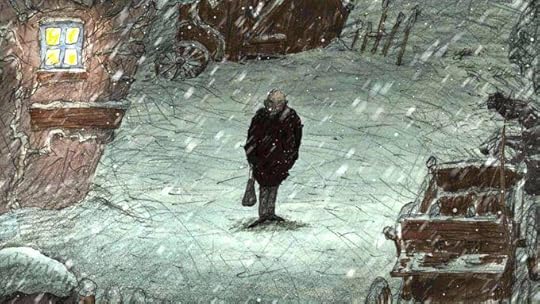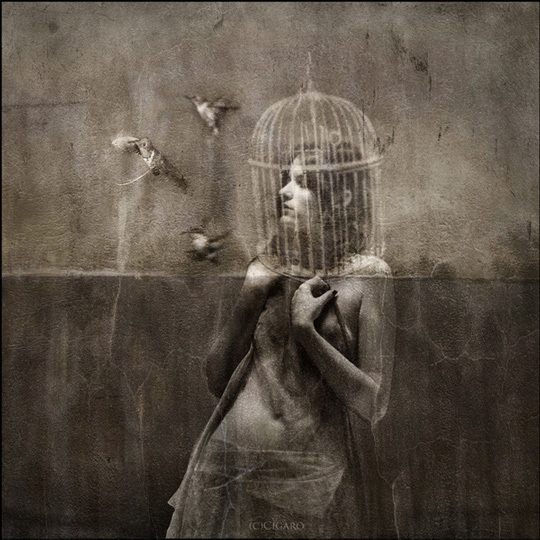What do you think?
Rate this book


92 pages, Hardcover
First published January 1, 1918
Gaunt, without any fever, not cold, not warm, with vacant eyes, without a shirt, the youngster heaved himself up from under the feather bedding, threw his arms around my neck, and whispered in my ear: ‘Doctor, let me die.’
Speech with the nomads is impossible. They do not know our language, indeed they hardly have a language of their own. They communicate with each other much as jackdaws do.
…the whole thing looks senseless enough, but in its own way perfectly finished. In any case, closer scrutiny is impossible, since Odradek is extraordinarily nimble and can never be laid hold of.
When I come home late at night from banquets, from scientific receptions, from social gatherings, there sits waiting for me a half-trained little chimpanzee and I take comfort from her as apes do.




